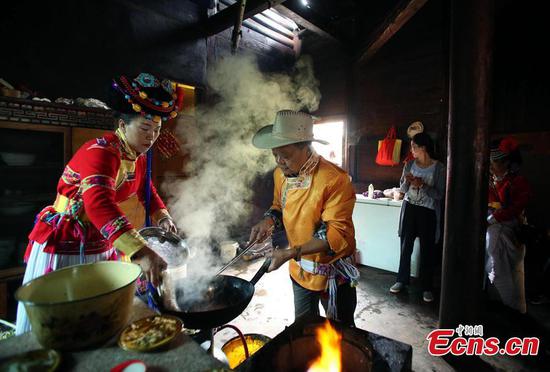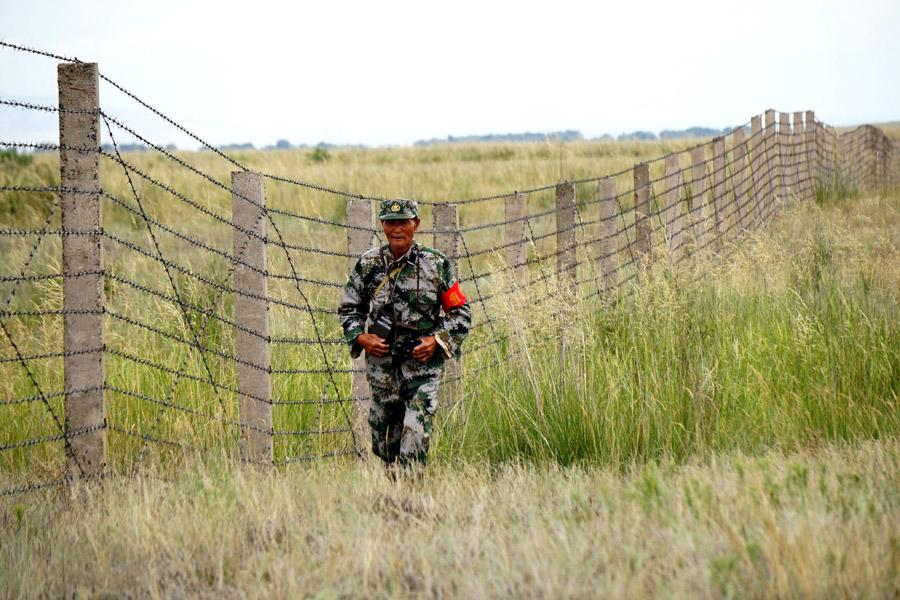
Wei Deyou patrols along the border. (Photo provided to China Daily)
A wife, a radio and a herd of sheep are 78-year-old Wei Deyou's only companions on a vast, barren prairie called Sarbulak in China's northwestern Xinjiang Uygur autonomous region.
Stretching straight to the horizon, Sarbulak, near the border with Kazakhstan, has been Wei's home for most of his life because of a commitment he made 54 years ago.
Wei traveled to Xinjiang from Beijing in April 1964 with comrades in the Xinjiang Production and Construction Corps to take on the mission of guarding the border.
There were many ways to fulfill the mission, but Wei picked herding livestock, tiresome work shunned by most others.
Choosing to run the animals meant waking up at sunrise and patrolling 20 kilometers of border. Swarms of gadflies and mosquitoes stung him through his clothes in summer, and blizzards piled up meter-deep snowdrifts that made every step difficult in winter.
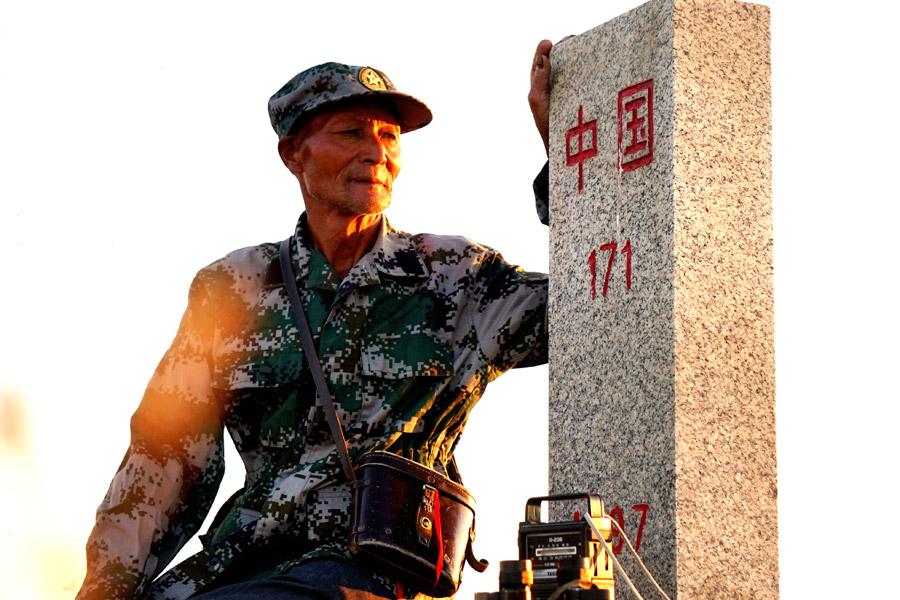
Wei Deyou patrols along the border. (Photo provided to China Daily)
"We shouldn't be picky," Wei remembers telling his wife, Liu Jinghao. "Who else would go patrol the border if nobody was willing to graze the cattle and sheep?"
They settled 4 km from the No 173 boundary marker with their 2-year-old daughter and infant son, building a home from scratch to start their new life.
In the 1980s, Wei's unit in the corps was disbanded, and his comrades began to move away. But Wei was too stubborn to leave. Due to his familiarity with patrol work and the surroundings, he was recruited as a border guard by the frontier force. He told his wife, "I'll just patrol the border on my way while shepherding, it's no bother."
The first winter he spent alone, after all his comrades left, he was caught in a blizzard while on patrol. The snowstorm darkened the sky and blurred his sense of direction. His clothes were iced hard, like armor, and the icy wind pierced his leather coat and pricked any exposed skin.
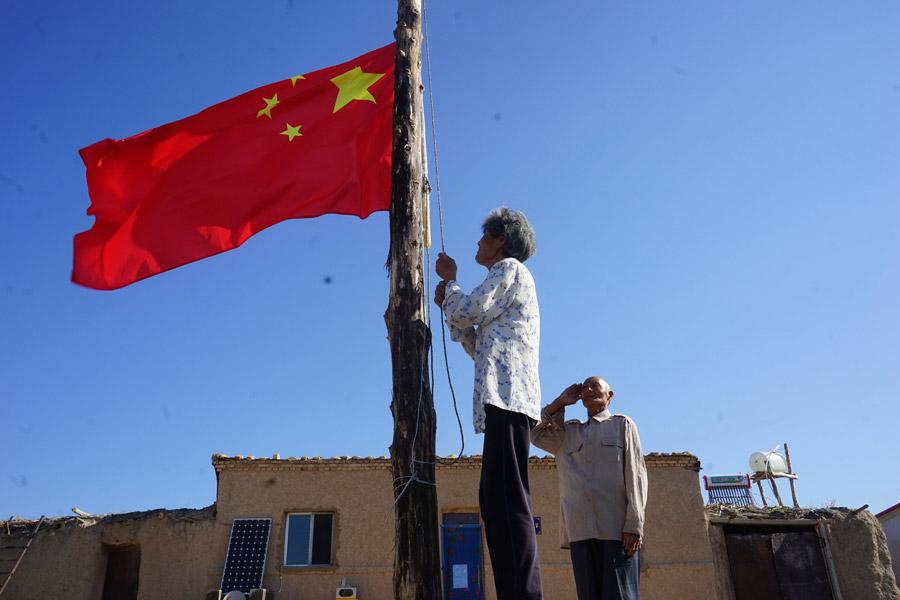
Wei Deyou and his wife. (Photo provided to China Daily)
The blizzard showed no sign of stopping as night fell. Groping in the dark and with his energy just about drained, Wei saw a faint light flickering ahead.
He pulled out the emergency flashlight in his pocket and flashed it toward the light. It came from soldiers on duty at the border post, and they found him, saving his life.
Wei has maintained his dangerous daily routine for 54 years. He leaves home every morning with three necessities - a pair of old binoculars, a rusty kettle and a radio - and sets out on the same path that has broken 50 previous radios.
His children grew up and left home to build their own lives. Only Wei and his wife stayed put.
Over the past five decades, Wei has successfully dissuaded thousands of people from crossing the border illegally and helped return tens of thousands of livestock.
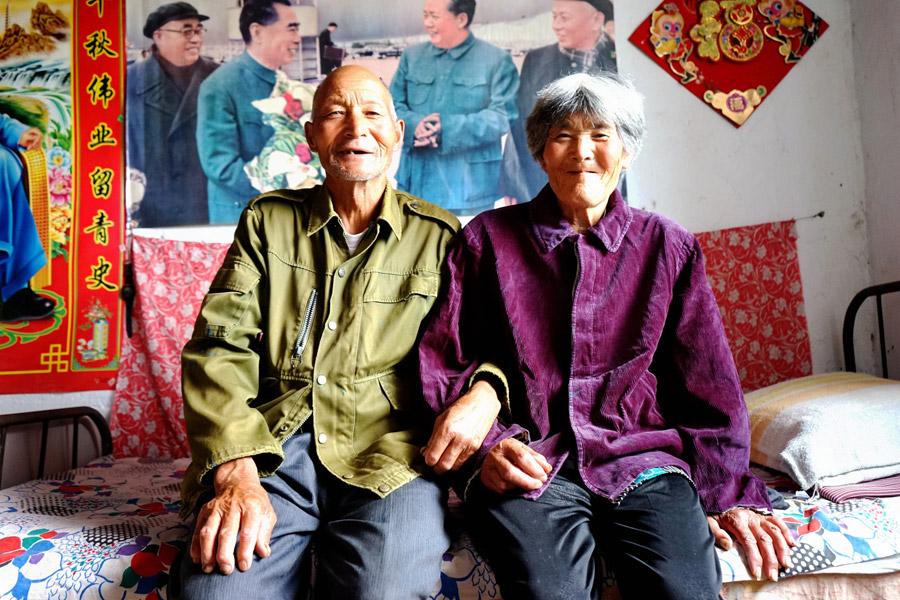
Wei Deyou and his wife. (Photo provided to China Daily)
His wife retired in 1992 and he retired in 2001, at age 60. They had earned a monthly salary of 6,000 yuan ($880) together, and their children scrambled to Xinjiang to try to take them back to their home province, Shandong. But Wei and Liu refused to leave Sarbulak.
"I'd feel uneasy if I couldn't walk along the border every day," Wei told his children.
Wei had a stroke in 2012 and was hospitalized, but nobody could persuade him to rest for long and he returned to Sarbulak as soon as he felt slightly better. "I thought this time he would finally move back," said former comrade Cao Guiying. "I never expected that he would go back to Sarbulak again just to keep guarding the homeland."
Wei turned 78 this year, hair silvered and face wrinkled. He and his wife still watch the sun rise and set every day from their home near the No 173 boundary marker between China and Kazakhstan.














